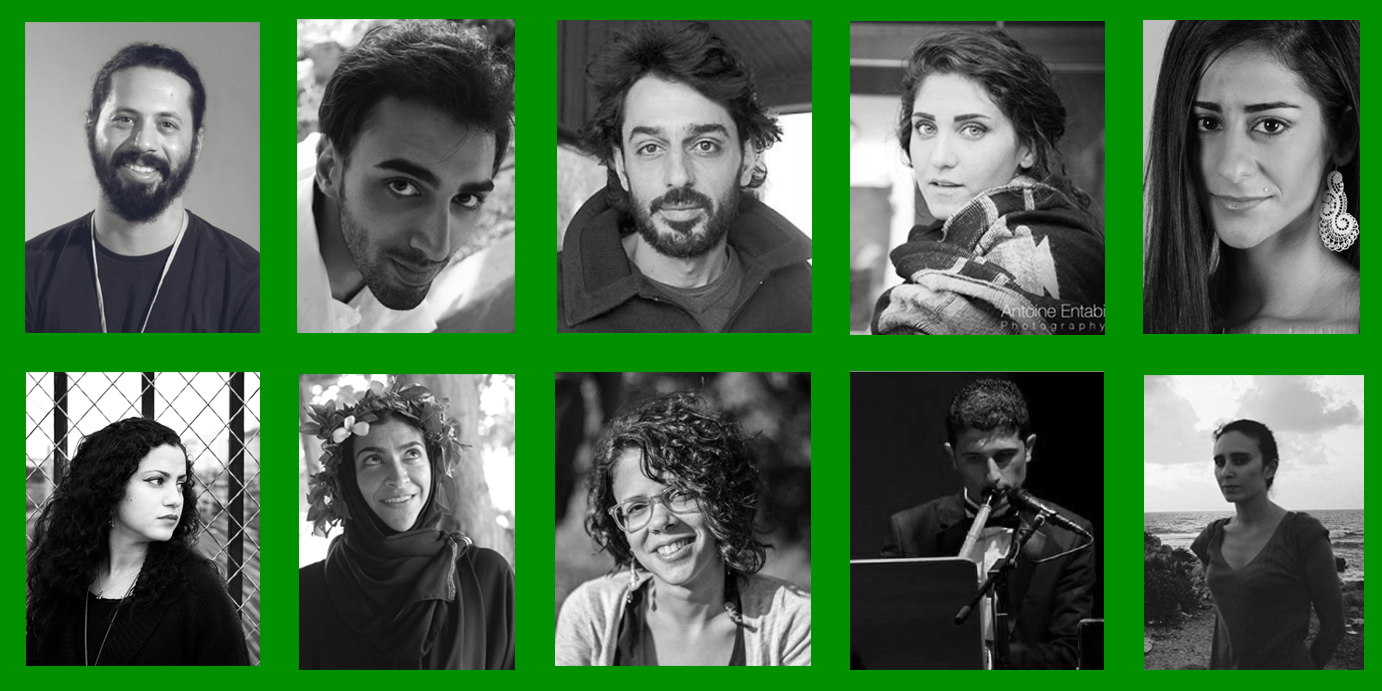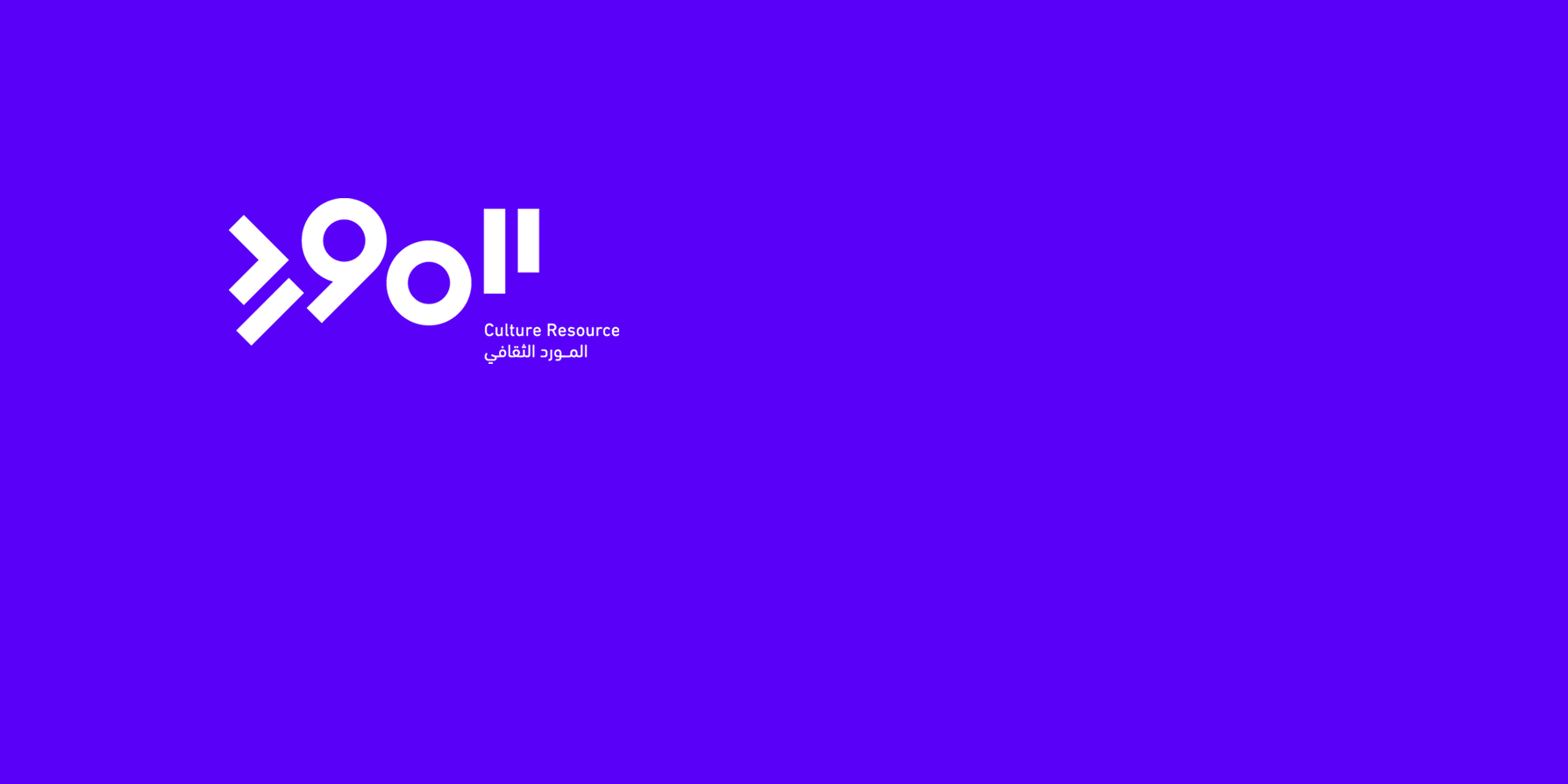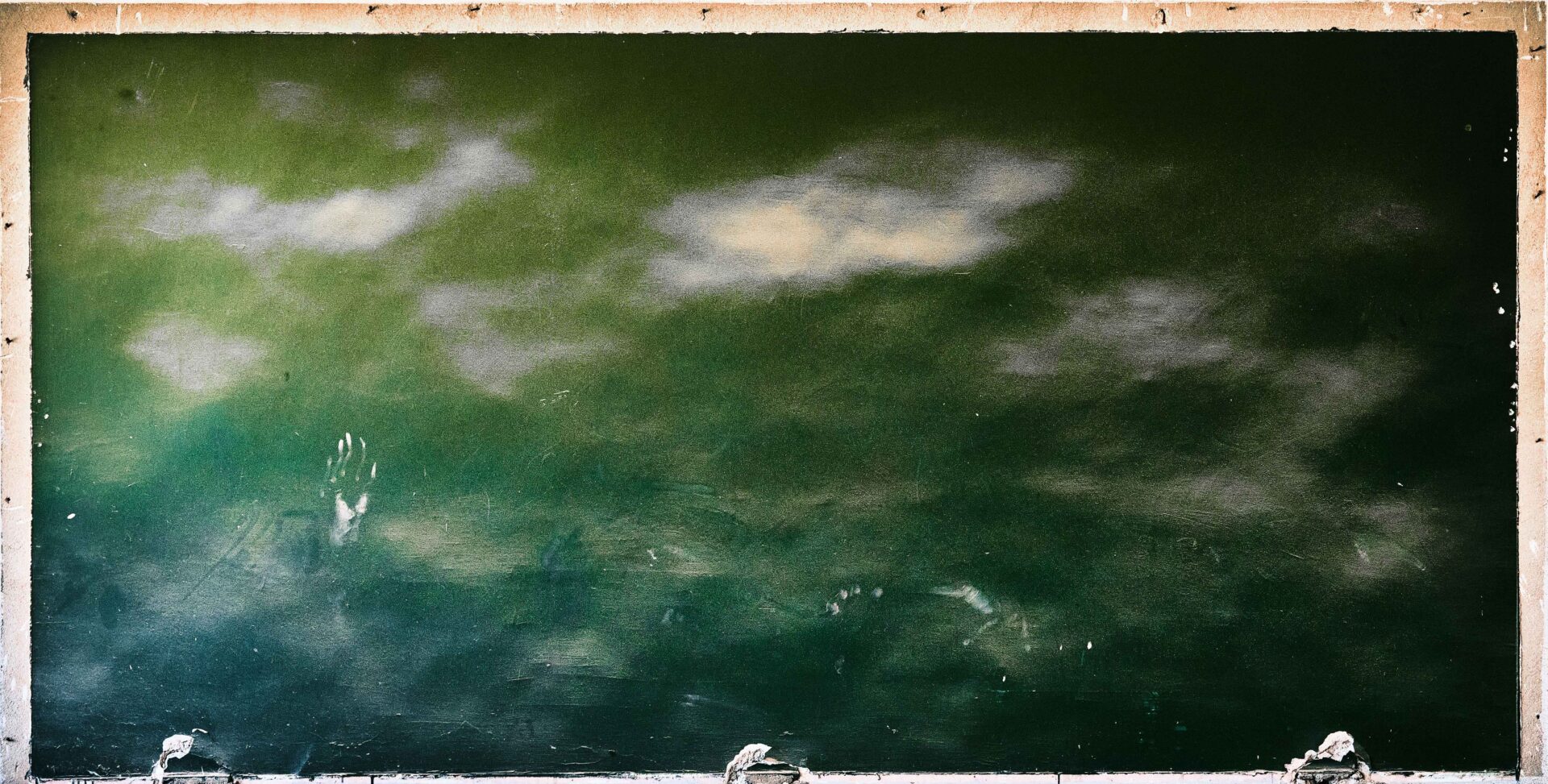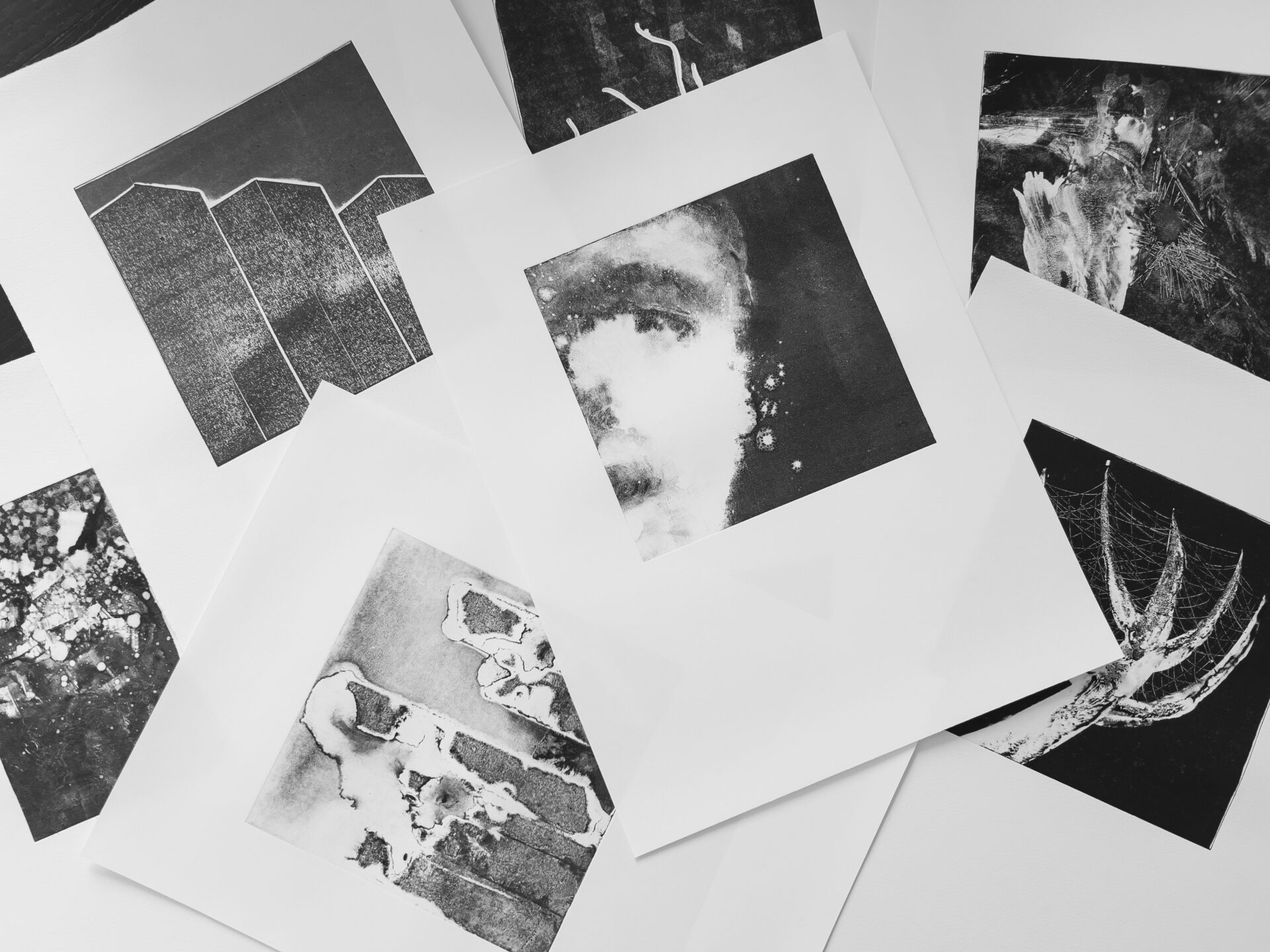Literature:
Alaa Salama (Palestine)
Project title: The Faceless
This novel is about a soldier in the Syrian army that loses the ability to distinguish, recognize and remember faces while he is on the battlefront. He becomes incapable of distinguishing one colleague from another, then his colleagues from the rebels, so he fights in line with the rebels when they take him as a hostage, and joins the lines of the Syrian army when its soldiers liberate him, after that he dissents the army with other dissidents without knowing which party is he taking at which time. He stops being able of recognizing himself in the mirror, nor separating himself from the others: colleagues, enemies or victims.
Rana Jarbou (Saudi Arabia)
Project: Walls of the Kingdom
Walls of the Kingdom is a book of ethnographic travel writing which narrates a journey visiting the walls of the Kingdom of Saudi Arabia in order to document the graffiti and the street art, from the shores of the Kingdom to the surrounding borders and crossing the Sahara and mountains. This book aims to draw map based on the expressions emerging from these walls. In three chapters, this book will showcase different graffiti phenomena, and the differing aesthetics within the culture and public space and include the detailed drawings, along with writings that capture the interactions that happen during the journey.
Music:
Emel Mathlouthi (Tunisia)
Project: Ensen
This album is the result of almost three years of musical collaboration with Johannes Berglund from Sweden and Valgeir Sigurðsson from Iceland, Tunisian composer Amine Matahni and musicians from Tunis, Paris and New York. A free journey through the skies and forests, this album rejects all musical borders to create a new and unique sound identity by merging percussions and instruments from traditional North Africa and contemporary electronic music.
Ibrahim Kadar (Syria)
Project: Nay Concerto
Nay Concerto is a collection of new melodic compositions by musicians from Syria for the wind instruments nay and kawala. The project aims to present the nay, an Arabic instrument, in Western musical forms such as the concerto and the caprice accompanied by an orchestra of stringed instruments (violin, viola, cello, and contrabass), along with oriental instruments (oud, qanun, buzuq and percussion instruments the riqq, mazhar and tabla), all accompanied by the piano.
Theater:
Ashtar Moallem (Palestine)
Project: Enheduanna
Enheduanna is a multi-disciplinary performance that gathers dance and circus arts. Its duration is 25 minutes. The performance portrays the status of women throughout history until this day, by incarnating two characters from the Sumerian mythology, a goddess named Inanna, daughter of Nana god of the moon, and a poetess named Enheduanna, daughter of king Sarjon and the first poetess that marked the History. Through the text, the life music, and the circus techniques such as circus aerial silk and contortion Ashtar Moallem launches an invitation for women to take action towards the multiple oppressions they live in today’s patriarchal societies. Enheduanna is a celebration of the energy of the woman.
Mithkal Alzghair (Syria)
Project: Transaction
This project is an exploration into how to create corporeality and movement in the field of contemporary dance. It started from the documentation of how the media is covering death and killing in the Syrian conflict, the dehumanizing way of presenting the body, turning it into a mass, a piece of flesh, a substance. Alzghair also researched art history to find the history of presenting the body in times of war. Between real life and art, he will share a personal story in an attempt to find a universal formulation of this issue.
Visual Arts:
Shaghig Arzomanian (Lebanon)
On Land and the Insane
book is a photographic narrative of the history of Asfouriyeh, the first hospital for mental illness in the Middle East, founded in 1898 near Beirut. Throughout merging photographs that Shaghig has taken in Asfouriyeh since 2010 and the yearly reports of the hospital, she attempts to go back in time to the beginnings of its founding and all the changes it has gone through since, from its first conception until today. In parallel, she tries to contemplate the visions, the choices and the challenges this place has faced or that have been imposed on it during the last century, and the relation between the above and the collective awareness, modernity and capitalism.
Hana Sleiman (Palestine)
Sea of Stories: Voyages of the Palestinian Archives
How to narrate history when the archive is missing? This question that has always preoccupied those interested in the narration of the Palestinian history, those who actually worked on gathering the oral histories and collecting the documents that survived the migrations and the consecutive invasions. Sea of Stories follows the steps of Palestinian archives from Beirut to other various Mediterranean cities through an interactive installation that uses map drawings and visual design. The installation will be presented in Dar El-Nimer for Art and Culture, during the third edition of Qalandiya International, an interactive artistic event organized in October 2016. The theme of this edition will be “The Return” with the slogan “this sea is mine”.
Cinema:
Madonna Adib (Syria)
Project: Letter in a Bottle
The film narrates a story of a middle class family who lives in Damascus, and the journey they take visiting embassies in Beirut to seek refuge to flee the war. During the bombing and shelling that is happening, the parents worries are reflected on their seven year old daughter’s behavior towards her stuffed animal. The events of the story escalate to reach the climax where the parents lose their daughter and she’s found by the port to plants her parents dreams in her stuffed animal, and sends it on one of the boats to continue her life’s journey in a “better place”.
Hussen Ibraheem (Lebanon)
Project: The Uncomfortable Sweetness of Reconnection
The film tells the story of Zahi, who left Lebanon with his mother to go to Sweden after his father was kidnapped, at the age of 12 years old. Informed that the body of his father has been found, he returns home after 25 years, aiming to organize a decent funeral for his father and to see the man he barely knew for one last time. Zahi goes to the hospital to see the corpse but it disappears. He tries to discover the reason behind it as he faces the second loss of his father in a bureaucratic world that lacks humane contact. This quest leads him to explore the city of Beirut where his father lived.
Selection jury members:
Literature: Ahmed Alfaitouri (Libya), Assia Mousei (Algeria), Hammour Ziada (Soudan)
Music: Yousra Dhahbi (Tunisia), Fadi El-Abdallah (Lebanon), Fawaz Baker (Syria)
Theater: Nawel Skandrani (Tunisia), Suleiman Al Bassam (Kuwait), Ahmed Habiby (Mauritania)
Visual Arts: Maha Maamoun (Egypt), Larissa Sansour (Palestine), Omar Berrada (Morocco)
Cinema: Huda Abuzeid (Libya/UK), Talal Afifi (Sudan), Mohamed Al Deradji (Iraq)





